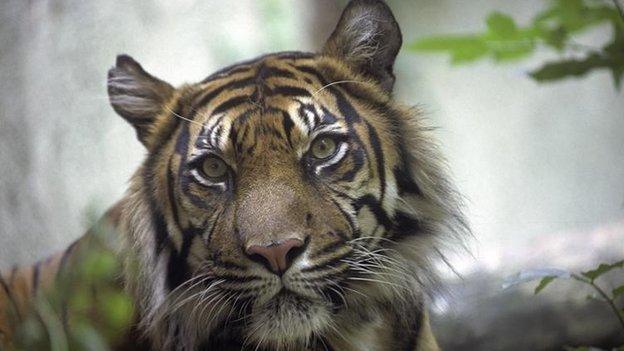Chester Zoo tiger cubs' birth vital to saving species - experts
- Published
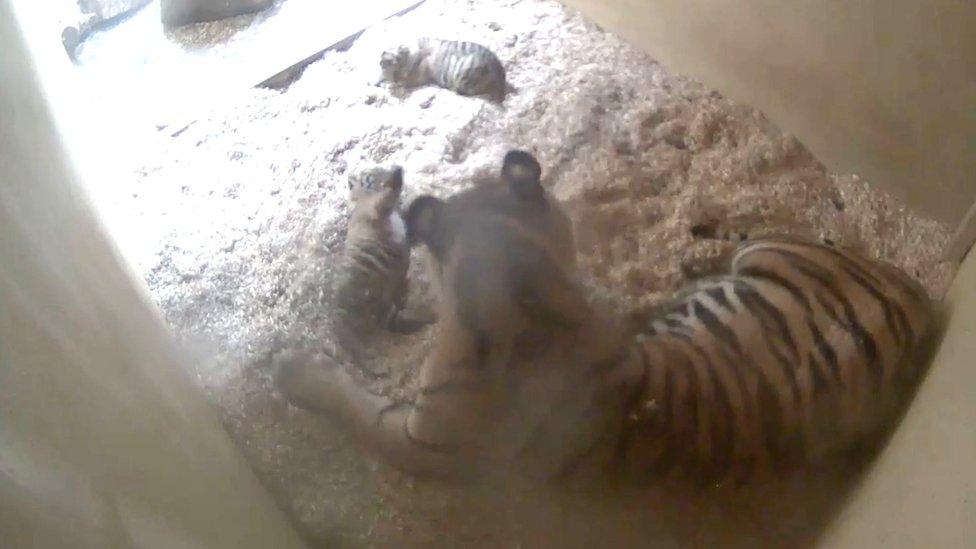
Hidden cameras captured the birth of the twins at Chester Zoo
The birth of twin Sumatran tiger cubs is "a significant step forward" in the conservation of the critically endangered species, Chester Zoo experts say.
Only 350 are thought to remain in the wild, making them one of the world's rarest tiger subspecies.
Hidden cameras captured the birth of the twins, which are yet to be sexed.
Mike Jordan, director of animals and plants, said the cubs were "absolutely crucial" to the species' survival.
Sumatran tigers are listed as critically endangered by the International Union for the Conservation of Nature (IUCN), the most severe conservation category and highest priority.
Habitat loss, poaching and conflict with humans could see the carnivores become extinct, the zoo said.
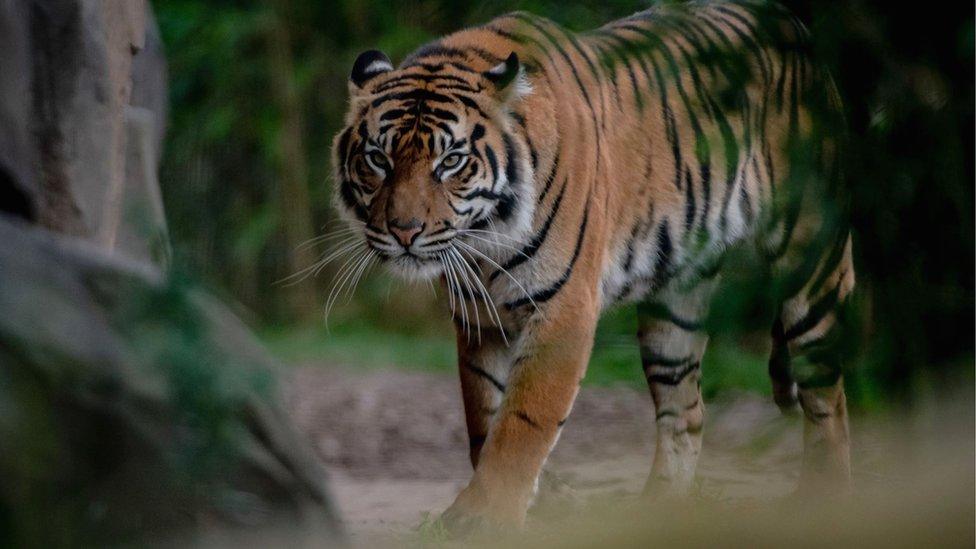
First-time mother Kasarna gave birth to the twins in January
"The birth of two more healthy Sumatran tiger cubs is another significant step forward in the long-term efforts to protect these incredible animals," said Dave Hall, the zoo's carnivore team manager.
"One day, the pair will hopefully go on to themselves make a vital contribution to the endangered species breeding programme, which is now playing a critical role in preventing these majestic animals from becoming extinct."
The twins were born to first-time parents Kasarna and Dash in January and the family has since been bonding in their den.
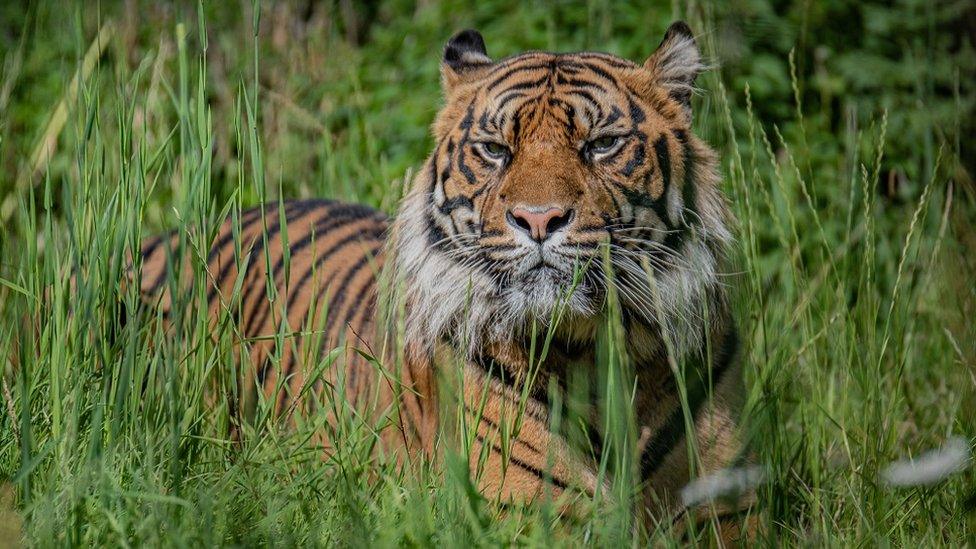
The species is heavily poached for its skin, bones and canine teeth the zoo said
Mr Hall added Kasarna was a "great mum" and was being very attentive to her new infants.
"It won't be too long until they gain enough confidence to start venturing outside for the very first time as a family, which is really exciting," he said.
Mr Jordan, from the zoo, said Kasarna's cubs were "absolutely crucial to the survival of the species".
"They are the latest additions to an insurance population in conservation zoos that will be the driving force in preventing the Sumatran tiger from enduring the same fate as the Javan, Caspian and Balinese tigers, which have all sadly been wiped out forever."
Sumatran tigers are found in patches of forest on the island of Sumatra in Indonesia and are faced with a high threat of extinction due to widespread habitat loss and poaching for their body parts which are used in traditional medicine.

Why not follow BBC North West on Facebook, external, Twitter, external and Instagram, external? You can also send story ideas to northwest.newsonline@bbc.co.uk
Related topics
- Published16 August 2022
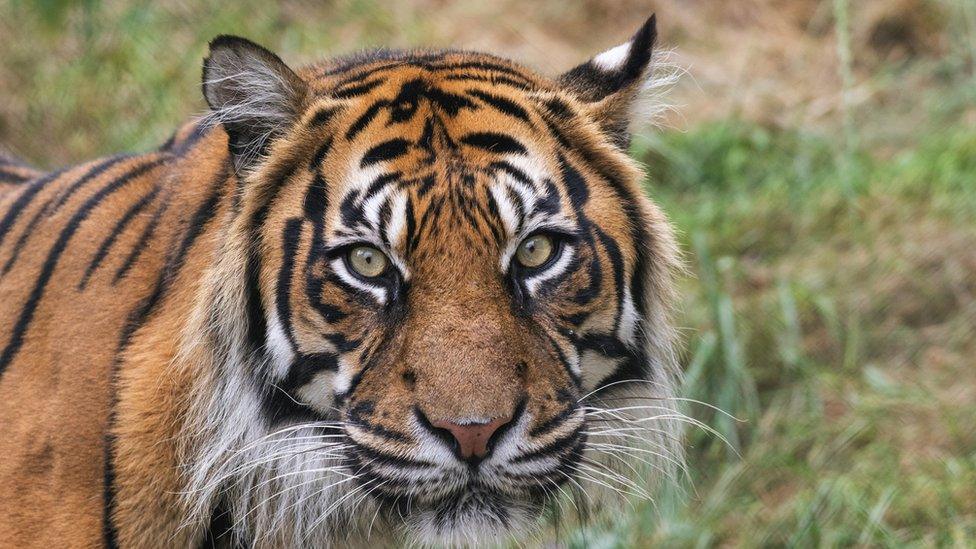
- Published25 July 2022
- Published31 December 2021
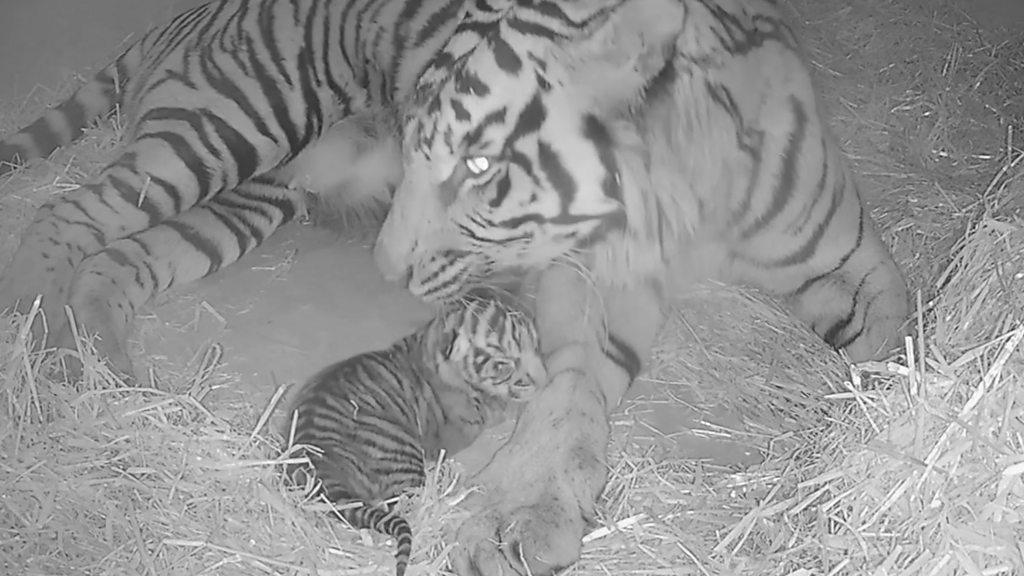
- Published23 January 2015
